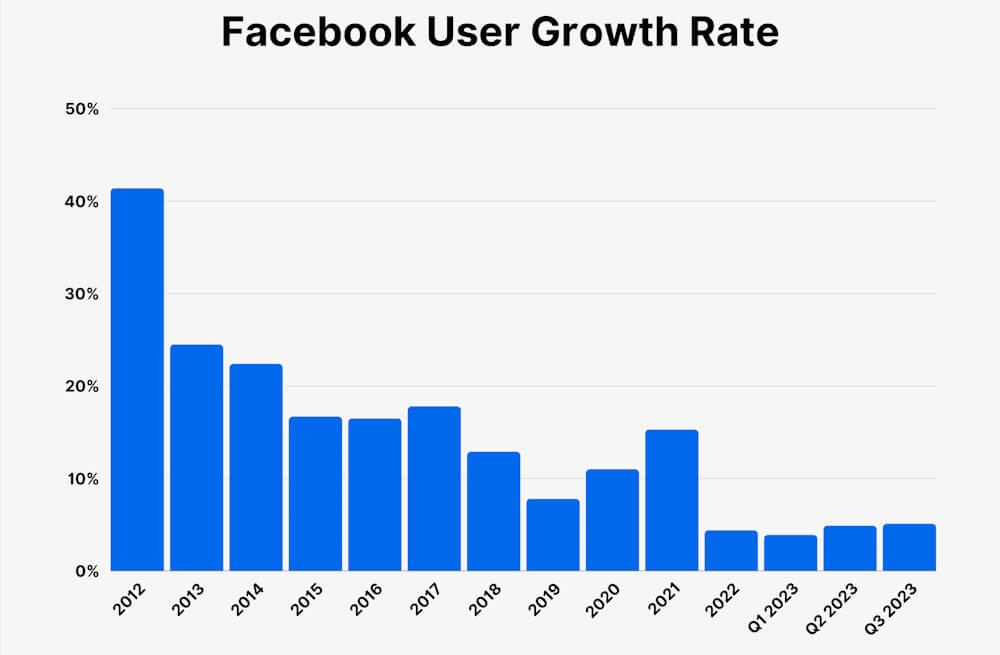Years ago, before major social networks emerged, niche forums dominated the internet. These forums covered topics from car restoration to dog training, with tens of thousands of active users.
To find a forum, you performed a search on the leading search engines and discovered communities where you could engage and build relationships.
Today, Facebook Groups have largely replaced these niche forums. This shift benefits users by allowing them to participate in multiple groups simultaneously through their Facebook newsfeed.
Over the past year, people and brands have increasingly migrated from Facebook Pages to Facebook Groups. Facebook’s algorithm changes have made it difficult for page owners to reach fans without paying to boost posts.
While there are strategies to improve engagement on Facebook Pages without ads, gaining visibility in fans’ newsfeeds remains challenging.
Facebook Groups are growing in popularity because they enable genuine relationships with target audiences. They create an ecosystem where every audience actively reads and engages with content. Groups facilitate two-way interaction, allowing members to post messages and ask questions.
Why use Facebook Groups for marketing?
The organic reach of Facebook Pages has declined steadily for years. Pages with more than 500,000 likes can experience organic reach as low as 2%. In contrast, Facebook Groups offer higher engagement and visibility. They provide a platform for direct interaction and community building with your audience, making them a more effective marketing tool.
The Facebook algorithm favors groups.
In 2016, Facebook adjusted its News Feed Algorithm to prioritize content from friends and family over pages. Lars Backstrom, Facebook Engineering Director, noted that pages could see a further dip in organic reach, sometimes below 2%.
For many businesses, using the platform requires a marketing budget. The algorithm scans over 1,500 posts per user session, including those from friends, followed pages, and groups, to display only 300 relevant posts.
Brands face low chances of appearing in fans’ News Feeds. Building relationships with fans offers better results than solely focusing on page promotion. Starting a Facebook Group allows more control and higher engagement potential. Increased engagement improves the chances of posts appearing in News Feeds.
Facebook Groups show posts chronologically, with comments moving posts to the top. Posts can be pinned for more visibility. Groups foster collaboration and focus on shared interests rather than promotion.
Regular interaction by group members (likes, shares, comments, posts, tags) can elevate content to the same priority level as friends and family in feeds. This means higher visibility for posts.
More businesses recognize the benefits of Facebook Groups for building communities around their products or services, enabling personal interactions with customers and leads.
Facebook Groups strengthen brand-customer relationships.
Groups allow you to build deeper connections with members than Facebook pages. You can enhance customer care by answering questions, gathering feedback, and providing after-sales service.
Some companies create separate Facebook Groups for each product line to offer online tutorials and usage tips. This approach delights customers and strengthens your relationship with them.
Facebook Groups help facilitate community building.
They bring together like-minded people, fostering relationships not just between your brand and customers but also among the customers themselves. This builds a community around your product or service.
As a group admin, encourage healthy dialogue between members. Focusing on “we” instead of “me” humanizes your brand. Since people trust each other more than brands, this approach helps build trust in your company.
Facebook Group members are qualified prospects.
Members join groups based on their interests and affinity, making them either existing or potential customers. They are more receptive to content and more likely to engage.
Properly nurturing these members is more effective for converting them into customers than a random ad campaign. Facebook Groups can therefore offer a high Return On Investment (ROI).
How to Create a Facebook Group for Your Business
Creating a Facebook Group is simple:
- Go to Facebook.com/Groups and click on the “+ Create Group” icon.
- In the popup, name your group, invite initial members, select the privacy level, and choose whether to “pin it to shortcuts.”
Next, choose an icon for your group. For example, select a trophy icon. After choosing, click “OK” to access your new Group page. Customize the group with a header image, tags, a description, and add more members.
If you need a header visual, consider using “The Stocks” for royalty-free stock photos.
Decide on the group’s privacy setting based on your goals:
- Secret: Only visible to members and not searchable.
- Closed: Visible in searches; only approved members see posts.
- Public: Visible to everyone; anyone can join and view posts.
Ensure your group is interest-based. Members join to learn, discuss, share, and have fun, not for sales pitches. Focus on building community first; sales will follow.
For example:
- In marketing, start a group sharing best practices and successful campaigns.
- In gardening, create a group about gardening tips, seasonal plants, and showcase your products occasionally. Encourage members to share their tips and garden photos.
The Benefits of a Facebook Group for Your Business
Starting a Facebook Group offers several advantages:
- Customer Satisfaction: A private Facebook Group can boost customer satisfaction, reduce refunds, increase retention, and enhance sales through word-of-mouth.
- Direct Communication: Unlike Facebook Pages, Groups enable direct interaction with both existing and potential clients. Members check their groups frequently, offering more immediate feedback compared to email or phone.
- Feedback and Engagement: Groups facilitate conversations that provide insights for marketing and product improvement. They also enhance customer service and retention by creating a community where members support each other.
- Sales and Authority: A private community can drive sales by offering a platform for like-minded individuals to connect. It also positions you as a leader, similar to hosting a conference, increasing your perceived authority and generating more leads for your business.
How to Use a Facebook Group for Your Business
You can leverage a Facebook Group in various ways to benefit your business:
- Gather Like-Minded Individuals: Bring together members to address common issues. Positive support and interactions enhance member experience, encouraging growth through word-of-mouth.
- Nurture Brand Ambassadors: Identify and support brand advocates within the group. Provide them with tools and special offers to promote your brand and increase your follower base.
- Exchange Ideas: Use the group’s collective input to discuss new features or services. Run polls to gather feedback on preferences and dislikes to guide product and marketing decisions.
- Build Awareness: Share case studies, tutorials, and research to increase visibility for your products and services.
- Internal Communications: Create a secret group for internal team communication. This simple approach can facilitate updates and discussions among employees across different locations.
- Offer Customer Support: Provide transparent customer support within the group. Quick responses to issues build trust and demonstrate openness.
- Networking: Extend the experience of conferences by inviting attendees to join the group. Engage participants in discussions to maintain momentum and benefit from their expertise.
Facebook Groups can enhance your marketing strategy by building an engaged community around your products or services. They facilitate interactions between you, your customers, and potential leads.
Increased engagement ensures higher organic visibility for your content on Facebook, surpassing what your company’s Facebook Page alone can achieve. This often overlooked tool can add significant value to your business.



